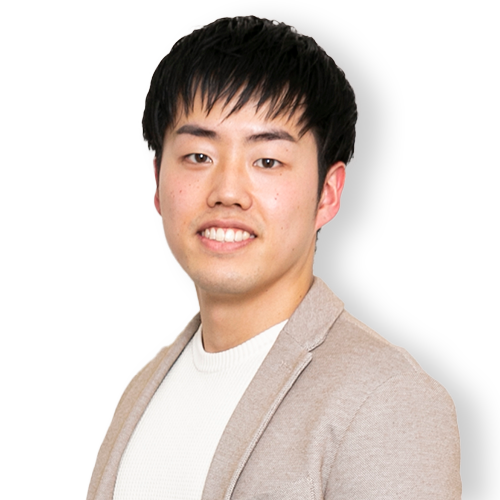Learning from my hobbies and tying them to my current work
I was in middle school when I realized I wanted to become a sound designer. So, when I was in high school, I actually started composing music and uploading it to YouTube.
The pieces I made were inspired by the worlds of fantasy games. I figured out early on that I wanted to work in the gaming industry.
If becoming a sound designer wasn't possible, I thought I'd specialize in CG and video work. Therefore, I chose a university where I could pick up a wide array of production skills, like music, video, CG modeling, projection mapping, and more. Outside of class, I'd draw, make 3D models, and even create my own games. You could even say it might have been a form of study for my creative work!
This may seem obvious, 3D modeling and graphics, alongside music, help build a cohesive and immersive world. Having the know-how and tools for graphics in your head gives your work a completely different level of polish. This all helped me with my personal projects, but it ended up being pretty handy for my current work.
My first experience with SEGA was my university part-time job there. I was tasked with adjusting the length of the music and sounds created for games. I remember the awe I felt when I realized, "The pros are using the tools I've been learning!" It was also the caring and attentive way everyone at SEGA taught me that made me want to apply there.
Combining sound and video to bring a game to life
I belong to the Sound Section, which is made up of specialists responsible for different facets of audio for console and arcade games. As a team, we are involved with many different divisions and contribute to each of their projects.
Among the tasks we do, I personally focus on creating game SFX and tentative lyrics for in-game songs. When creating lyrics, I prepare the songs by inserting a temporary vocal track to check the key and nuances before handing it off to the vocalist.
It's a surprisingly interesting task; I had always thought sound designers would mainly be responsible for composing songs. Who'd have thought I'd need to sing? I didn't, haha.

As for SFX, I try to form a mental image of what's going on in the game and draft many sounds, based on the specifications we're given. Like, take the words, "Swoosh with an echo." What do you need to do to put this sound together? They may be short samples, but the process of making a sound effect is very close to the process of creating songs.
It's not easy, because there's so many things we have to consider, but the hard work really pays off when we finally get to see our SFX added to the designs and animations. I feel a surge of joy and it serves as a reminder that we're really making a game!
The SEGA Sound Team: a place of high-level technical skills
Each person on SEGA's Sound Team has a remarkable level of skill. Until now, I didn't get to see other members of the Sound Team outside of the projects I've been assigned to, but lately, I've had more chances to speak to a wider number of them. I absorb more and more new things from the senior employees, and I want to keep putting my skills to use at SEGA.
This kind of learning environment is what makes SEGA such a great place to work at. If there's something you're unsure of, it's reassuring to know the senior employees will happily offer a guiding help if you just ask.

They always make sure to share their skills and knowledge. The Sound Team has an incredible level of skills and delivers high-quality works. I'd love if even more people knew that about us, and to do that, we're investigating ways to make even better creations.
There may be some who think that it'd be impossible for them to get a job making songs. I was nervous about that too.
However, at SEGA, I work with many people when I create a song. Thanks to that, I can challenge myself to do the things I want to do and enjoy my work as a creator. To those of you who aim to become a Sound Designer, I encourage you to think positively about challenging yourself.
*This interview was conducted during the third year of employment.
10:00 AM Arrive at work, and check my emails and chat messages.
11:00 AM Begin work on sound production projects. If I receive any queries over chat, I'll respond to them right away.
12:30 PM Break for lunch. Afterwards, I take a nap and prepare for the afternoon's tasks.
1:30 PM Resume work on sound production projects. I also check my afternoon emails.
5:00 PM Attend regular meeting. I'll address any queries over chat for the other projects I'm on.
7:00 PM Check tomorrow's work schedule and clock out. At home, I take time to enjoy some gaming and make music.

STAFF INTERVIEWS
















